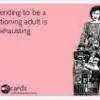-
Welcome to Celiac.com!
You have found your celiac tribe! Join us and ask questions in our forum, share your story, and connect with others.
-
Celiac.com Sponsor (A1):
Celiac.com Sponsor (A1-M):
-
Get Celiac.com Updates:Support Our Content
Autism Rising
-
Get Celiac.com Updates:Support Celiac.com:
-
Celiac.com Sponsor (A17):
Celiac.com Sponsor (A17):
Celiac.com Sponsors (A17-M):
-
Recent Activity
-
- cristiana replied to Karmmacalling's topic in Post Diagnosis, Recovery & Treatment of Celiac Disease4
-
- trents replied to Bebygirl01's topic in Related Issues & Disorders5
How many people here are aware that there are 9 types of gluten that Celiacs should be aware of?
The NIH article you link actually supports what I have been trying to explain to you: "Celiac disease (celiac disease) is an autoimmune-mediated enteropathy triggered by dietary gluten in genetically prone individuals. The current treatment for celiac disease is a strict lifelong gluten-free diet. However, in some celiac disease patients following a... -
- Bebygirl01 replied to Bebygirl01's topic in Related Issues & Disorders5
How many people here are aware that there are 9 types of gluten that Celiacs should be aware of?
Perhaps you would still like to answer the questions I posed on this topic, because that is all I asked. I am curious to know the answers to those questions, I do not care about the background of Dr. Osborne as I am more aware of the situation than you are, and he is also one of the best known authors out there on Celiac disease. But did you even bother to... -
- Nicola McGuire replied to Nicola McGuire's topic in Parents, Friends and Loved Ones of Celiacs3
-
- Scott Adams replied to Karmmacalling's topic in Post Diagnosis, Recovery & Treatment of Celiac Disease4
Celiac pain relief
Oh no, I'm sorry to hear about the accidental gluten! This article, and the comments below it, may be helpful:
-






Recommended Posts
Archived
This topic is now archived and is closed to further replies.